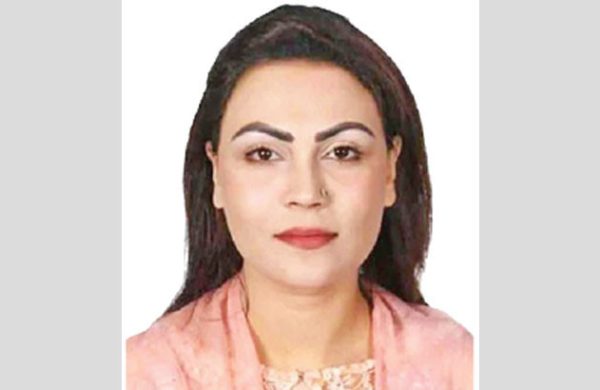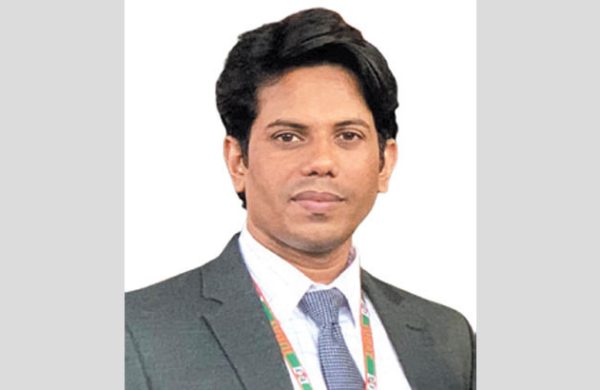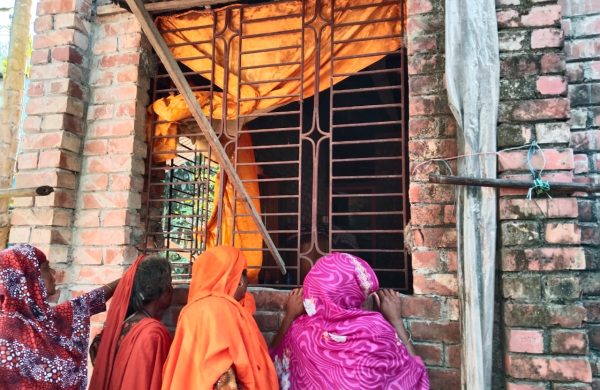We need to reform civil society first
- Update Time : Saturday, July 12, 2025

—Audite Karim—
Right now, a grand drama of state reform is being staged in Bangladesh. Day after day, meetings are being held on reforming the state. Politicians are listening to scholarly speeches by members of civil society. These “civil” individuals are flaunting their erudition, dining well, and while keeping the people in the dark, they are constantly trying to impose new philosophies and state ideologies on political parties. So far, the major political parties of the country have silently tolerated everything from civil society in the name of democracy. However, among the general public, this theatrical reform process has sparked sharp reactions.
People feel that a certain segment of the civil society is attempting to impose their own ideas and opinions into the constitution and state structure in the name of the people, completely disregarding the will of the public. But the state belongs not just to a small elite group of intellectuals — it belongs to the people.
Before anything else, we need to understand what is meant by “civil society.” Civil society refers to that forward-thinking portion of a society that acts as the conscience of the nation — those who guide the people, enlighten them, and point out the irregularities, corruption, and authoritarianism in the state and government. Civil society serves as the state’s “think tank,” offering opinions, research, and writings to ensure accountability.
A key trait of civil society is impartiality — rising above partisanship to offer objective analysis of government policies, laws, and actions. They identify mistakes and suggest corrections, building public opinion around these issues. Globally, this is how civil societies operate. In countries where democracy has flourished and accountability is established, civil society has played a crucial role. Their views help shape national thinking and governance.
But in Bangladesh, a portion of civil society seems to walk a different path. They have their own political agenda and are constantly working to implement it. They want a share of state power — something that goes against the very nature of civil society. Not only that, they aim to render political parties inactive and ineffective. Ideally, the relationship between civil society, political parties, and the government should be one of mutual respect. But this segment of civil society seems to regard political parties as “uneducated” and incapable. According to them, only they possess wisdom and knowledge.
This group does not aim to help purify or enrich political parties with advice, information, and research for better democratic practice. Rather, they seek to undermine political parties in front of the public and achieve their own goals by discrediting them. It was this faction of civil society that supported the depoliticization process in 2007 — a sort of civil society-led coup in Bangladesh. But after assuming power, the caretaker government under Moin U. Ahmed and Fakhruddin not only failed but also fostered public mistrust of civil society. People realized that the way these individuals talk on talk shows and roundtables does not match what they actually believe or do. In 2007, the people of this country saw how dangerous civil society figures could become when given power.
In 2024, the student and people’s uprising toppled fascism in Bangladesh. With a dream of a democratic, just, and discrimination-free state, students and young people sacrificed their lives to defeat authoritarianism. But after the fall of this regime, those who led the front lines, who envisioned a new Bangladesh, are now sidelined. State power seems to have been monopolized by a certain segment of civil society. Those now speaking about state reform in the National Consensus Commission are trying to impose their opinions on political parties. But who are these people? What roles did they play over the last 15 years? Did they participate in protests? Did they risk their lives? Were they persecuted? No — they remained safe, some abroad, some in the country. From a distance, they watched Bangladesh like a circus, and now they want to arrange everything to their liking. To them, Bangladesh seems like a guinea pig — a subject for their lab experiments. They appear desperate to experiment with the fate of the people.
On June 13, Chief Advisor Dr. Muhammad Yunus visited London and met BNP Acting Chairperson Tarique Rahman. There, they issued a joint statement expressing hope for elections by February. This was considered a historic moment in Bangladesh’s politics. It gave rise to hopes of democracy and elections. But this was never implemented. Instead, during the 9-day continuous meetings of the National Consensus Commission, questions arose — where is this heading? What does civil society want? Why are they trying to force their opinions on political parties?
The main job of the National Consensus Commission should be to present reform proposals to political parties — proposals that people and students have been demanding for years, such as a caretaker government, judicial independence, accountability, transparency, independence of the Election Commission, etc. Political parties should give their opinions on these issues. A joint declaration should be drafted based on consensus, and the national election should be held in light of this declaration. Whichever party wins, they will implement this joint declaration. Civil society can continue discussions and negotiations with the government on issues outside the declaration and help incorporate public aspirations into the state system.
But what we’re seeing is that under Dr. Ali Riaz’s leadership, the National Consensus Commission is forcing political parties to accept things unrelated to elections — ideas not even practiced in developed democracies. Political parties are told that without agreeing to everything, there will be no “July Accord.” So, what’s the point of these meetings? As BNP leader Salahuddin Ahmed rightly asked — if the commission is going to implement only what it wants, why meet with political parties at all?
Many of the topics being pushed are highly technical and speculative. There are global debates over their effectiveness — like reducing the Prime Minister’s powers, or forming constitutional commissions. These are theoretical ideas. There’s no proven formula anywhere that reducing a Prime Minister’s powers strengthens democracy. Democracy, accountability, and good governance are not lab-created formulas. They are built through continuous practice, with political parties working alongside the people. Civil society should function as a think tank — the nation’s conscience — pushing for accountability. When this works in harmony with media freedom and judicial independence, democratic growth becomes structured.
But what we see is that some members of civil society have created a blueprint for reform — one they refuse to deviate from. They want to impose a theoretical model without being certain whether it will succeed or fail in practice. For example, how will elections be held in a proposed bicameral parliament? There’s no ready-made formula for this anywhere in the world. Yet, our civil society is trying to impose one. This is a dangerous sign for democracy
Reform is a continuous and evolving process. It requires practice. And for that, the responsibility must be given to political parties. But when civil society attempts to impose their views on political parties under the guise of reform commissions, it undermines the role and rights of political actors.
Given the role civil society is currently playing, it’s clear they need a better understanding of their own scope and responsibilities. That’s why reforming civil society is the need of the hour. If civil society is not reformed, they will repeatedly try to interfere in politics, muddy political waters, and create division and disorder to fulfill their political ambitions. As a result, democracy will never have a solid foundation.
Now, we see civil society trying to divide political parties on various issues. This division hinders the journey of democracy. If we want to build a united Bangladesh, everyone must fulfill their respective roles — and no one should overstep their bounds. Since everything else is being reformed, why not civil society too? What’s the harm?
————————————————————
The writer is a playwright and columnist Email: [email protected]



















